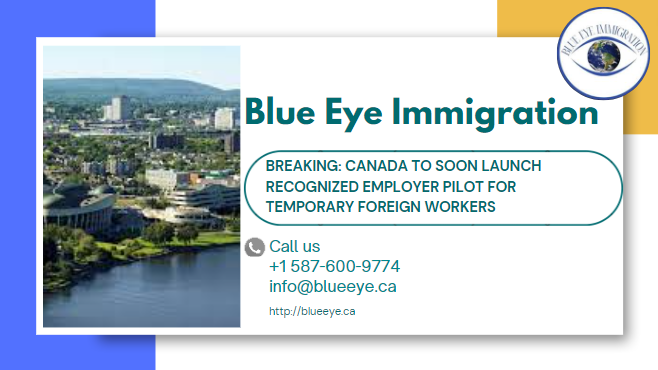In order to assist companies in addressing critical labor shortages through the Temporary Foreign Worker Program (TFWP), Randy Boissonnault, Minister of Employment, Workforce Development, and Official Languages, announced amendments to the Temporary Foreign Workforce Solutions Road Map today.
The goal of the Temporary Foreign Workforce Solutions Road Map is to provide companies with the ongoing ability to adapt the Temporary Foreign Workforce Program (TFWP) to changing labor and economic situations in
The following adjustments to the Temporary Foreign Workforce Solutions Road Map have been implemented or preserved as a result of today’s announcement:
- Up to 30% of their workforce may still be hired in low-wage positions through the TFWP by employers in seven specific sectors: food manufacturing, wood product manufacturing, furniture and related product manufacturing, accommodation and food services, construction, hospitals, and nursing and residential care facilities;
- For positions paying less than the provincial or territorial minimum wage, a two-year employment length cap will be maintained; Labor Market Impact Assessments (LMIAs) will no longer be valid for more than 18 months; and
- Employers will have to assess temporary foreign workers’ pay annually starting on January 1, 2024, to make sure that it is commensurate with the going rate for the occupation and area in which the person is employed.
These extended measures are all scheduled to expire on August 30, 2024, with the option to modify them as necessary based on labor market and economic conditions.
Even though the COVID-19 epidemic caused Canada to make significant strides in addressing historical labor shortages, a number of industries, like the ones listed above, are still beset by a chronic labor deficit that the nation is unable to handle internally. In September, the jobless rate was at 5.5%, a number that has remained constant over the past three months despite unprecedented immigration levels. In fact, there are still open positions as seen by the roughly 40% rise in employer demand for the TFWP over the same period last year.
What is the Program for Temporary Foreign Workers (TFWP)?
The TFWP, one of Canada’s two umbrella work permit programs, is the means by which Immigration, Refugees and Citizenship Canada (IRCC) uses immigration to meet the country’s labor shortfall.
Foreign nationals may be employed by Canadian businesses to work in Canada via this program, which also includes streams for agriculture, live-in caregivers, and high- and low-wage foreign workers. Employers must obtain a Labour Market Impact Assessment (LMIA), an official permission procedure and document used by the Canadian government to determine if an individual who is not a permanent resident or citizen might have been employed for the same position. The employment of a foreign worker is permitted if the LMIA returns with a favorable or neutral conclusion; nevertheless, if the decision is made in a way that is not supported by the LMIA, the work permit application will be denied. Work licenses supported by the LMIA are restricted to a single industry and one particular company.
A crucial component of the program is employer compliance. In addition to keeping an online database of businesses found to be in violation of TFWP criteria (which cover things like pay, working conditions, and workers’ rights), the Canadian government has also implemented a safety program for program participants who are vulnerable workers. In order to expedite the LMIA process for reputable businesses with a strong program record, the IRCC also introduced the Recognized Employer Pilot (REP). This initiative highlights the significance of these employees in keeping open positions.

